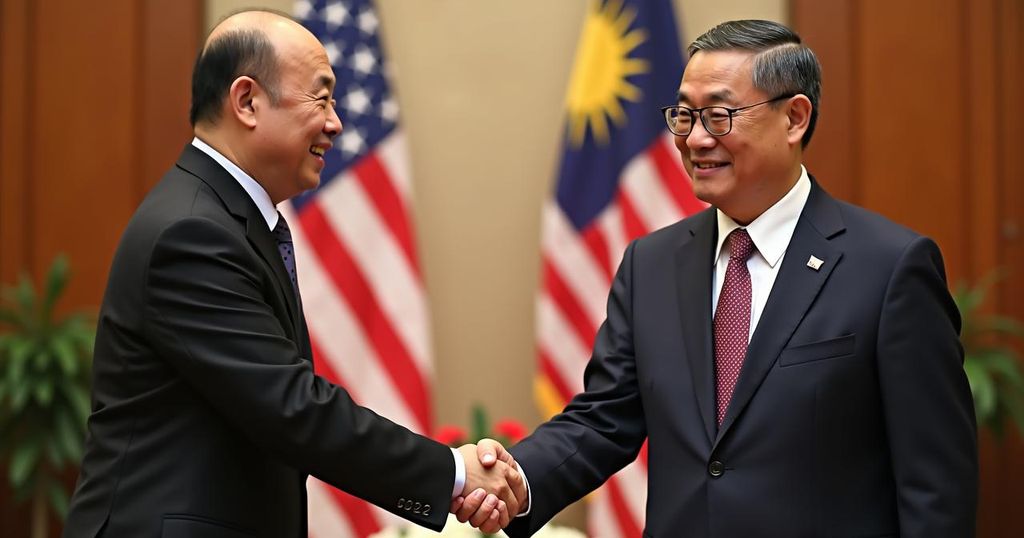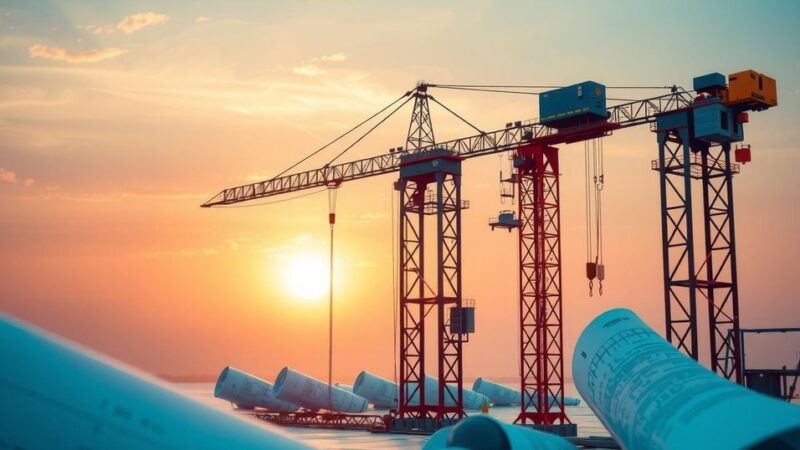Laotian Prime Minister Sonexay Siphandone handed over ASEAN’s chairmanship to Malaysian Prime Minister Anwar Ibrahim after Laos’ commendable leadership year. Malaysia’s tenure will focus on “Inclusivity and Sustainability.” Key issues include the Myanmar crisis, Timor-Leste’s accession, and South China Sea disputes, with expectations that ASEAN will adopt a more proactive approach.
On Friday, Laotian Prime Minister Sonexay Siphandone officially transferred the ASEAN chairmanship to Malaysian Prime Minister Anwar Ibrahim after the conclusion of the regional leaders’ summit held in Vientiane. Laos’ leadership over the past year has been commendable, showcasing its economic and political influence despite its smaller size and GDP when compared to the larger Southeast Asian economy of Indonesia. Prime Minister Siphandone diligently adhered to the consensus agreements established by ASEAN leaders during their previous summit in Jakarta. Critics had anticipated a lenient stance from Laos regarding the ongoing Myanmar crisis; however, the military junta, which has been barred from official forums for violating the five-point consensus aimed at restoring democracy, was permitted to participate only with approval from all ASEAN leaders. During the recent East Asia Summit, attended by ASEAN and its major dialogue partners, including China, Japan, and Australia, a collective statement addressed sensitive subjects such as developments in the Korean Peninsula and Russia’s actions in Ukraine. As Malaysia prepares to assume its role as ASEAN chair in January, Prime Minister Anwar has introduced the theme “Inclusivity and Sustainability” and has extensive experience in ASEAN matters. It is anticipated that he will resolve the outstanding issues facing the bloc and lay a robust groundwork for achieving ASEAN’s 2045 vision. Conversely, under the impending leadership of Prabowo Subianto, Indonesia is likely to adopt a more proactive stance in ASEAN, especially following the departure of President Joko “Jokowi” Widodo, who notably absent himself from the summit. There are several pressing agenda items requiring urgent attention. First, the ongoing civil war in Myanmar demands that ASEAN leaders reassess the rigid adherence to the five-point consensus, a sentiment echoed by the newly elected Thai Prime Minister Paetongtarn Shinawatra, who has proposed hosting an informal meeting on the matter in December. The push for involving larger neighboring countries, such as China and India, is crucial in mediating the ongoing violence. Second, Timor-Leste’s accession to ASEAN should be accelerated, with both Prime Ministers expressing a readiness to finalize its membership. With increased support from numerous countries, including a softened position from Singapore, there is now a compelling case for Timor-Leste’s entry into ASEAN. Lastly, the South China Sea dispute remains a significant issue. Unlike Cambodia’s previous actions, Laos did not seek to overly placate China during the summit. The agreement between ASEAN and China to expedite negotiations on a non-binding Code of Conduct is a promising step toward enhancing trust and stability in the region.
The article discusses the recent transfer of chairmanship within the ASEAN organization from Laos to Malaysia, accentuating the performance of Laos during its tenure. It highlights the challenges ASEAN faces, particularly regarding the Myanmar crisis, Timor-Leste’s application for membership, and tensions in the South China Sea. It emphasizes the expectations for Malaysia’s leadership going forward and Indonesia’s potential shift in its approach under new leadership. Understanding these dynamics is essential to grasp the complexities of ASEAN’s regional relations and its future direction.
In conclusion, the leadership transition from Laos to Malaysia marks a significant moment for ASEAN, with ongoing challenges including the Myanmar conflict, the accession of Timor-Leste, and the contentious South China Sea issue requiring decisive action. The initiatives proposed by new leaders reflect a commitment to addressing unresolved matters and fostering regional stability. The future of ASEAN will depend on collaborative efforts between member states and dialogue partners to navigate these complex issues effectively.
Original Source: asianews.network






